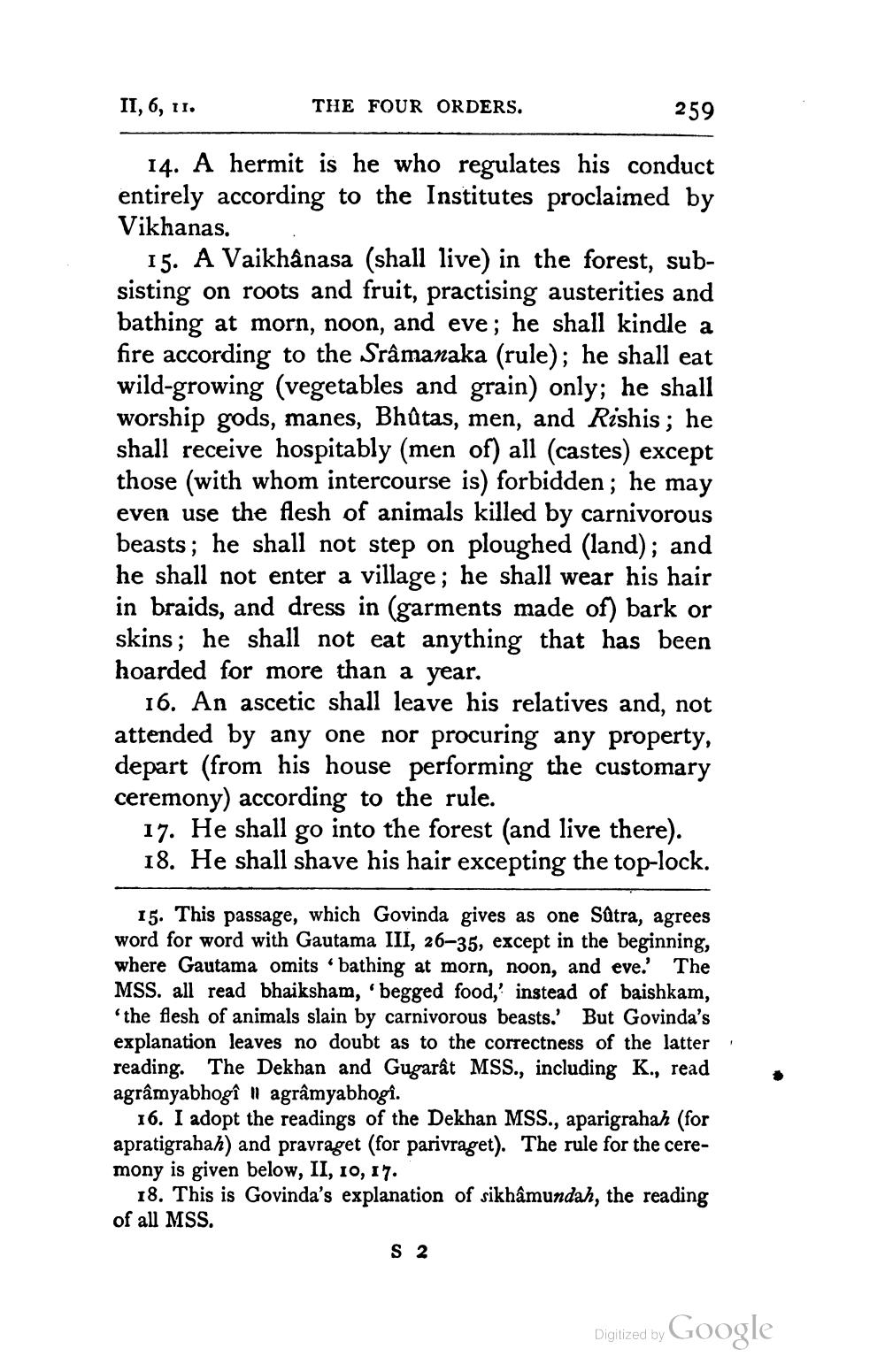________________
II, 6, 11.
THE FOUR ORDERS.
259
14. A hermit is he who regulates his conduct entirely according to the Institutes proclaimed by Vikhanas.
15. A Vaikhânasa (shall live) in the forest, subsisting on roots and fruit, practising austerities and bathing at morn, noon, and eve; he shall kindle a fire according to the Srâmanaka (rule); he shall eat wild-growing (vegetables and grain) only; he shall worship gods, manes, Bhūtas, men, and Rishis; he shall receive hospitably (men of) all (castes) except those (with whom intercourse is) forbidden; he may even use the flesh of animals killed by carnivorous beasts; he shall not step on ploughed (land); and he shall not enter a village; he shall wear his hair in braids, and dress in (garments made of) bark or skins; he shall not eat anything that has been hoarded for more than a year.
16. An ascetic shall leave his relatives and, not attended by any one nor procuring any property, depart (from his house performing the customary ceremony) according to the rule.
17. He shall go into the forest (and live there). 18. He shall shave his hair excepting the top-lock.
15. This passage, which Govinda gives as one Sätra, agrees word for word with Gautama III, 26-35, except in the beginning, where Gautama omits bathing at morn, noon, and eve. The MSS. all read bhaiksham, 'begged food, instead of baishkam, 'the flesh of animals slain by carnivorous beasts. But Govinda's explanation leaves no doubt as to the correctness of the latter reading. The Dekhan and Gugarât MSS., including K., read agrâmyabhogî li agrâmyabhogi.
16. I adopt the readings of the Dekhan MSS., aparigrahah (for apratigrahan) and pravraget (for parivraget). The rule for the ceremony is given below, II, 10, 17.
18. This is Govinda's explanation of sikhâmundah, the reading of all MSS.
S 2
Digitized by Google




